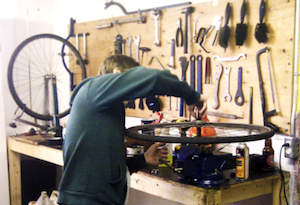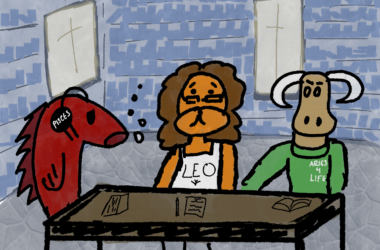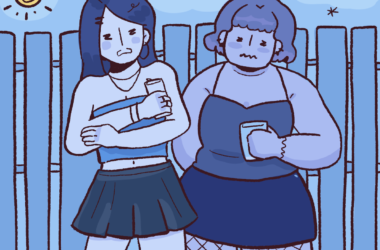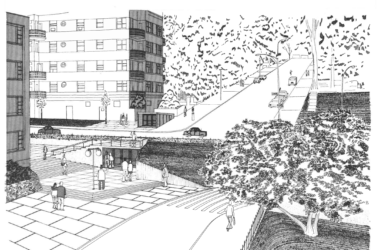Around Montreal, local communities are organizing bike-co-ops to get city-dwellers moving. In the downtown area alone, Concordia and McGill Universities both host co-ops designed to make everyday bicycling more accessible to a wider range of people. In fulfilling this mission, the volunteer-run projects have become an integral part of the Montreal student and biker communities.
Montreal is home to a multitude of volunteer-run spaces where cyclists can receive assistance in repairing and maintaining their rides. Among them are Concordia’s Right to Move/La Voie Libre and McGill’s The Flat Bike Collective, where cyclists can get help fixing their bicycles, gain skills in bike mechanics, and even build their own bike in a community setting, no matter their skill level. The co-ops aim to keep cycling an affordable mode of transportation for all Montrealers, regardless of their background.
These downtown co-ops were founded, in part, as educational centres. According to Flat volunteer Athar Ejaz Qureshi (U3 Engineering), the goal of volunteering is to empower people with relevant skills to take on projects of their own.
“There’s no minimum requirement on what you need to know,” Ejaz Qureshi said. “We’ve had instances where we’ve had people come in who don’t know anything, and they’re willing to put the time in, and by the end of the shift, they know how to fix a flat.”
At both organizations, patrons can come buy frames at each stage of the building process. Visitors can also start their own bicycle building projects, with volunteers there to guide them along the way. For long-term projects, the co-op offers storage space for bikes and tools.
In their efforts to become more accessible, the bike collectives have also established a more public presence on Montreal campuses. The Flat has a bike parts vending machine located in the Burnside basement, which allows students to obtain the parts they need outside of the cooperative’s operating hours.
“The vending machine […] was started with seed funding from the Sustainable Projects fund,” Ejaz Qureshi said. “[The machine is] full of bike tubes and brake parts [for students to purchase].”
Several current Montreal co-op volunteers started out as members, coming in to fix their bikes. Myke Wilder has now been a regular for eight years. During his involvement, he eventually took the Right to Move’s mechanics class and started showing other people the ropes.
“I would come in to fix my bike, and people who were volunteers would help me,” Wilder said. “[As a volunteer], I can see when people are doing the kinds of things that I would do. Over the years, I’ve learned a fair bit about bikes, and every week I learn from the people who come into the shop to fix bikes.’”
In addition to providing open studio space, both Concordia’s Right to Move and McGill’s The Flat Bike Collective host nights designated for specific groups. The Right to Move opens the shop exclusively to women/trans/femme (WTF)-identifying people every Wednesday. The use of the specific word “femme” illustrates that they strive to offer a bilingual service to the Montreal community. The Flat hosts a similar event, Women Trans Queer (WTQ) Night, on the first Wednesday of every month, that welcomes members of the group. These initiatives both create a greater sense of community within the collectives and uphold their inclusive missions.
“There are some people who are not comfortable in the shop on an evening […] where it’s just four guys, and there aren’t a lot of women,” Wilder said.
These downtown co-ops allow Montrealers to hone a new skill, encourage environmentally-friendly transportation, make cycling a more affordable alternative, and create a welcoming community.









